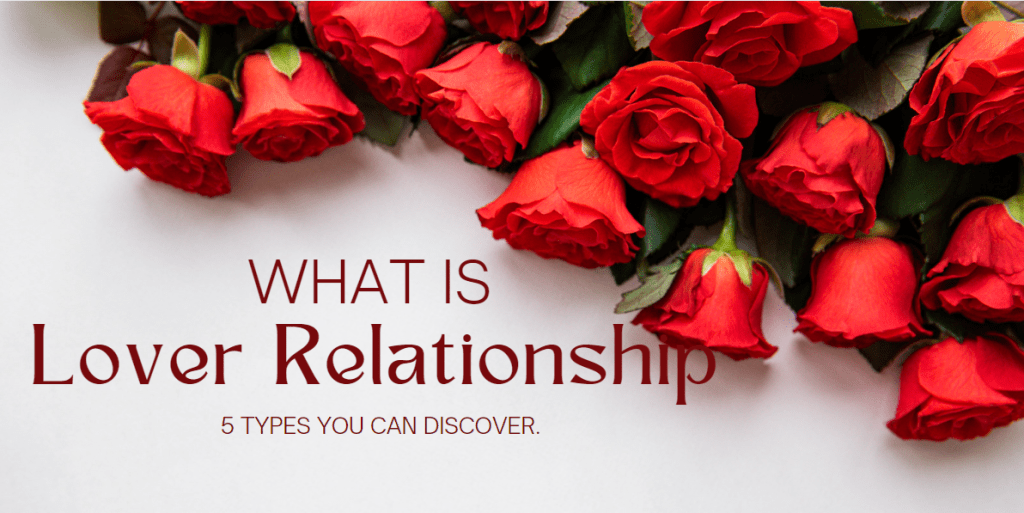A lover relationship is a unique and intimate bond between two individuals who share a deep emotional connection, affection, and romantic attraction. It goes beyond friendship and involves a romantic involvement characterized by love, passion, and companionship. In this article, we will explore the essence of a lover relationship, its key elements, and how it differs from other types of relationships.
1. Understanding Lover Relationships
Defining Love and Romance
Love is a complex and multifaceted emotion that involves a deep affection, attachment, and care for another person. Romance, on the other hand, refers to the expression of love in a passionate and intimate way, often associated with attraction and desire. A lover relationship encompasses both love and romance, creating a strong bond between two individuals.
Exploring the Purpose of a Lover Relationship
Lover relationships serve various purposes, including emotional fulfillment, companionship, and personal growth. They provide a safe space for individuals to explore their emotions, share experiences, and build a life together. Lover relationships can bring joy, happiness, and a sense of belonging to those involved.

2. Building Blocks of a Lover Relationship
Emotional Connection and Intimacy
Emotional connection forms the foundation of a lover relationship. It involves understanding, empathy, and being attuned to each other’s needs and emotions. Intimacy, both emotional and physical, deepens the connection and creates a sense of closeness and vulnerability.
Physical Attraction and Desire
Physical attraction and desire play a crucial role in a lover relationship. It involves being physically drawn to one another, experiencing sexual chemistry, and engaging in intimate acts that enhance the bond and strengthen the relationship.
Trust and Communication
Trust and open communication are vital for the success of a lover relationship. Trust allows individuals to feel secure, knowing that their partner will be honest, reliable, and faithful. Effective communication fosters understanding, resolves conflicts, and ensures that both partners are heard and valued.
Support and Companionship
Support and companionship are essential aspects of a lover relationship. Being there for each other during challenging times, providing emotional support, and sharing life’s joys and sorrows help strengthen the bond and create a sense of partnership.

3. Characteristics of a Healthy Lover Relationship
Mutual Respect and Equality
A healthy lover relationship is built on mutual respect and equality. Both partners value each other’s opinions, decisions, and boundaries. They treat each other as equals, fostering a balanced and harmonious dynamic.
Honesty and Openness
Honesty and openness create a foundation of trust in a lover relationship. Being truthful and transparent with one another promotes authenticity, vulnerability, and deeper emotional connections.
Empathy and Understanding
Empathy and understanding are essential qualities in a lover relationship. It involves being able to put oneself in the other person’s shoes, empathize with their emotions, and offer support and understanding during challenging times.
Shared Values and Goals
Shared values and goals provide direction and alignment in a lover relationship. When partners have similar values and aspirations, it enhances compatibility and strengthens the foundation for a long-lasting and fulfilling relationship.
4. Nurturing and Sustaining a Lover Relationship
Quality Time and Shared Experiences
Spending quality time together and creating shared experiences is crucial in nurturing a lover relationship. Engaging in activities that both partners enjoy strengthens the emotional connection and creates lasting memories.
Emotional Support and Affection
Providing emotional support and expressing affection are vital for sustaining a lover relationship. Showing care, appreciation, and affectionate gestures fosters a sense of love, security, and happiness within the relationship.
Managing Conflicts and Challenges
Conflicts and challenges are inevitable in any relationship. Effectively managing and resolving conflicts in a healthy manner strengthens the bond between partners. It involves active listening, compromise, and finding mutually beneficial solutions.
Continual Growth and Adaptation
A lover relationship is a journey of continual growth and adaptation. Both partners should be open to personal and relational growth, embracing change and evolving together as individuals and as a couple.
5. The Difference Between a Lover Relationship and Other Relationships
Friendship versus Romance
While friendship involves a deep connection and care, a lover relationship goes beyond that by adding romantic and physical elements to the equation. Romance adds passion, desire, and an intimate dimension that distinguishes it from a platonic friendship.
Lover Relationship versus Casual Dating
A lover relationship differs from casual dating in its level of commitment and exclusivity. Casual dating often involves less emotional investment and a focus on exploration, whereas a lover relationship signifies a deeper commitment and a desire for a long-term connection.
Lover Relationship versus Marriage
A lover relationship and marriage share similarities but also have distinct differences. A lover relationship may or may not lead to marriage, as it is based on individual preferences and circumstances. Marriage typically involves a legal and formal commitment, whereas a lover relationship can exist without the legal binding.
Conclusion
In conclusion, a lover relationship is a unique and intimate bond characterized by love, romance, and companionship. It requires emotional connection, physical attraction, trust, and open communication to thrive. By nurturing the relationship, embracing shared values, and supporting one another, a lover relationship can bring immense joy, fulfillment, and personal growth to those involved.
What is the difference between a lover and a partner?
While the terms “lover” and “partner” are sometimes used interchangeably, a lover relationship often emphasizes the romantic and passionate aspects of the connection. A partner can refer to any person with whom one is in a committed relationship, regardless of the romantic or sexual nature of the bond.
Can a lover relationship turn into a long-term partnership?
Yes, a lover relationship can evolve into a long-term partnership or even marriage. As the emotional connection deepens and the commitment grows stronger, many lover relationships transition into more long-term commitments.
What should I do if my lover relationship is experiencing challenges?
Communication is key when facing challenges in a lover relationship. Discuss your concerns openly and honestly with your partner, seek professional help if needed, and work together to find mutually beneficial solutions. Remember that every relationship goes through ups and downs, and with effort and commitment, challenges












